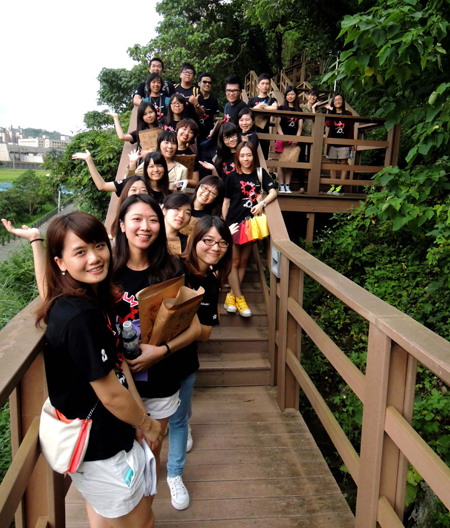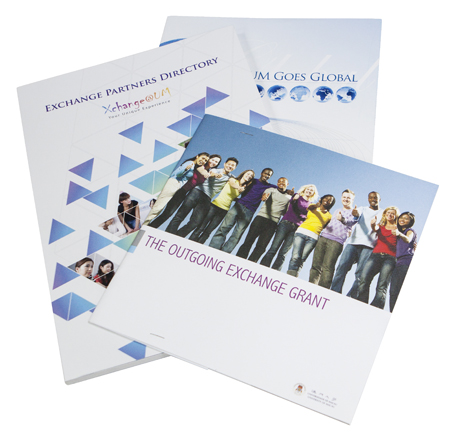During every summer holiday or at the start of every new semester, many UM students pack their bags and go abroad for various kinds of international exchange activities. Do you want to be one of them? Are you ready to grab the various exchange opportunities offered by UM? This issue of My UM tells you more.
The long summer holiday is a wonderful chance to explore the world. Apart from self-initiated travels, many faculties, departments and offices at UM offer international exchange opportunities for UM students to enrich their summer life. For instance, the Student Affairs Office (SAO) organises a Summer Programme on a regular basis. This summer holiday, SAO arranged for around 300 students to participate in this exchange programme in 18 countries and regions, including Europe, the United States, Canada, Japan, South Korea, Mongolia, Hong Kong, Taiwan, and mainland China. The Pearl Jubilee College organised a cultural exchange trip to Taiwan. Participants visited residential colleges, general education centres and local sites of cultural and historical significance. The Communications Office organised a trip to Taiwan for 20 University PR Student Ambassadors and UM Reporters. Participants visited Taiwan University, Chengchi University, Taiwan Normal University and Shih Hsin University. They shared experience in guest reception, guiding campus tours, interview and news writing with their counterparts at the four universities. Many students said they had benefited a great deal from the trip and they look forward to applying what they have learned to their future work.
In addition to exchange activities that happen during the summer holidays, there is also the Student Exchange Programme organised by the Global Affairs Office (GAO). This programme does not only provide opportunities for one-semester or one year exchange activities, but also short-term activities such as competitions. Normally, GAO gets busy with the start of each new semester. Take fall semester for instance. In late August or early September, GAO colleagues would organise promotional activities such as briefing sessions and start accepting exchange programme applications for the next semester. The application procedure is usually complete by the end of September, and after that various faculties, departments and residential colleges would sort the application data and submit them to the relevant overseas partner institutions by the end of November. Upon receiving feedback from the partner institutions around the end of December, GAO colleagues will carry out a series of follow-up work, such as handling applications for exchange funding and organising pre-departure briefings. The seemingly complex process actually fits in nicely with the university’s wish to carry out education through every means possible—even just applying for an exchange programme. For instance, students need to decide which university they wish to go. They need to search information on the internet, and select universities that best suit their goals and ideals. They also need to take care of visa application, transport arrangement, etc. GAO’s website contains a lot of useful information on this aspect. Check out “UM Global i”, which has video clips of international exchange opportunities you don’t want to miss, like the Youth Summit.
Annie Chan, functional head of international relations, and Carol Wong, functional head of mainland affairs of GAO, have observed that participants of the exchange programme often become more confident, mature and proactive. “Their changes are noticeable,” Annie and Carol say. “They knock on our doors more often because they are now clearer about what they want and where they want to go in the future.” Annie and Carol say helping students become more independent is exactly the most important purpose of the programme besides broadening their horizons.


